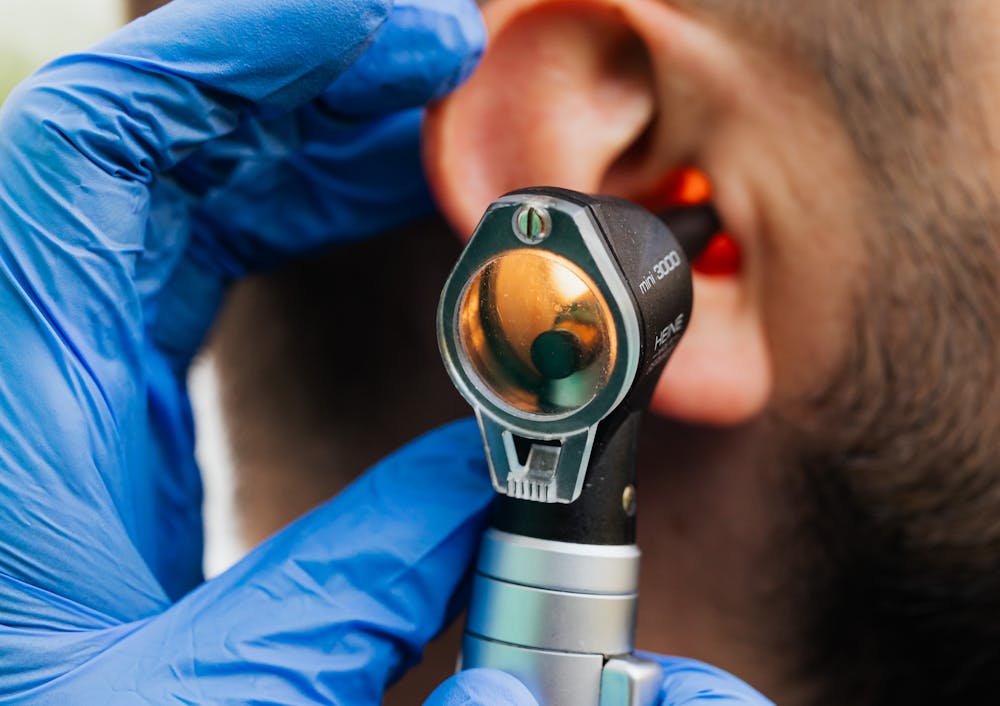Caring for your ears goes beyond enhancing your hearing—it’s about safeguarding one of your most delicate senses. Your ears are self-cleaning wonders, but improper care can lead to discomfort, infections, or even hearing loss. While it’s easy to overlook ear health in our daily routines, adopting simple practices can make a big difference.
From safe cleaning techniques to mindful lifestyle choices, there are effective ways to keep your ears clean and healthy without causing harm. In this post, we’ll explore six practical tips to help you maintain ear hygiene, avoid common pitfalls, and enjoy optimal auditory health.
Whether you’re a stickler for cleanliness or just looking for better care habits, these tips are your guide to healthy, happy ears. Let’s dive in.
Clean Your Ears Safely and Avoid Cotton Swabs
Cotton swabs may seem like the go-to tool for cleaning your ears, but they can push earwax deeper and damage the ear canal. Instead, let your ears’ natural cleaning mechanism do the job. Use a damp cloth to clean the outer ear gently, and if you feel a buildup of earwax, consider using over-the-counter drops designed to soften the wax.
These drops make it easier for earwax to come out naturally. Regular bathing and rinsing the outer ear can also help maintain cleanliness. Avoid inserting any objects into your ears, as this can harm the delicate inner structures. Prevention is key to avoiding issues caused by improper cleaning methods.
Consult Professionals for Safe Ear Cleaning
While earwax plays a vital role in protecting your ears, excessive buildup can cause discomfort, blockages, or even hearing loss. Avoid the temptation to remove wax using cotton swabs or sharp objects, as these can push the wax deeper or damage the ear canal.
Instead, consider seeking professional help for safe and effective cleaning. For instance, you can contact ear cleaning specialists who use tools like suction devices or irrigation systems designed to remove the wax without harming your ears. Professional cleaning ensures thorough wax removal while safeguarding the delicate structures inside your ears. Regular checkups with a specialist can also help address any recurring ear health concerns.
Protect Your Ears from Excess Noise Exposure
Exposure to loud sounds can cause permanent damage to your ears, leading to noise-induced hearing loss. To protect your ears, avoid prolonged exposure to loud environments and wear ear protection such as earplugs or noise-canceling headphones when necessary. Keep the volume at safe levels when using headphones or earbuds, and follow the 60/60 rule: listen at 60% volume for no more than 60 minutes at a time.
Regular breaks from noisy settings give your ears time to recover. Protecting your ears from excessive noise not only preserves your hearing but also helps prevent issues like tinnitus and sensitivity to sounds.
Use Safe Methods to Manage Earwax
Earwax is a natural substance that helps protect your ears from dirt and bacteria, but improper removal can lead to problems. Avoid using sharp objects like bobby pins, tweezers, or other tools to clear wax, as these can damage the sensitive ear canal or eardrum. Instead, opt for safer alternatives such as over-the-counter ear wax softening drops or irrigation kits.
These methods allow the wax to loosen and exit naturally. If you suspect a blockage or experience discomfort, consult a healthcare professional for assistance. Prioritizing safe practices ensures that your ears remain clean and healthy without risking unnecessary harm.
Keep Your Ears Dry to Prevent Infections
Moisture trapped in your ears can create a breeding ground for bacteria and fungi, leading to painful infections like swimmer’s ear. After swimming or bathing, dry your ears thoroughly by tilting your head to each side to let excess water drain out. Use a clean towel to gently pat the outer ear dry.
For extra precaution, wear swim caps or earplugs when swimming. If water remains in your ears, consider using over-the-counter drying drops. Avoid inserting anything into your ear canal to remove water, as this can damage delicate tissues. Keeping your ears dry is a simple yet effective way to prevent discomfort and infection.
Maintain a Healthy Diet for Optimal Ear Health
Your diet plays a surprising role in your health. Nutrients like omega-3 fatty acids, zinc, and vitamins C and E can improve circulation and support auditory function. Foods like fish, nuts, citrus fruits, leafy greens, and whole grains provide these essential nutrients.
Additionally, stay hydrated, as dehydration can affect the tiny hair cells in your inner ear that are responsible for hearing. Avoid excessive salt and caffeine, as they may contribute to hearing problems over time. A balanced diet not only benefits your overall health but also protects your ears from age-related issues and helps you maintain sharp hearing throughout your life.
Caring for your ears is essential for maintaining your hearing and overall well-being. By adopting safe cleaning methods, protecting your ears from excessive noise, keeping them dry, and maintaining a nutritious diet, you can prevent many common ear problems. Avoid using sharp objects or harmful techniques, and don’t hesitate to seek professional help when needed. Healthy ears contribute to a better quality of life, so make ear care a part of your regular self-care routine. With these six simple yet effective tips, you can enjoy clearer hearing and keep your ears in top shape for years to come.


